Hello and welcome. In this article, we'll look at interpretations of Ephesians 2:1-3 in early Christianity. This article supplements and provides additional evidence supporting our article that covers ancestral sin in early Christianity. We recommend you read that article before this. Additionally, we've written an article here going over the passage and critiquing the original sin interpretation of Ephesians 2:1-3 from a biblical perspective.
THE TEXT
Eph 2:1 And you hath he quickened, who were dead in trespasses and sins;
Eph 2:2 Wherein in time past ye walked according to the course of this world, according to the prince of the power of the air, the spirit that now worketh in the children of disobedience:
Eph 2:3 Among whom also we all had our conversation in times past in the lusts of our flesh, fulfilling the desires of the flesh and of the mind; and were by nature the children of wrath, even as others.
This passage is often used by affirmers of original sin and inherited Adamic guilt to argue that all humans are under God's wrath from conception. The reason for this wrath being upon us from the beginning of our existence, they say, is because all mankind is held guilty by God of Adam's sin.
A BRIEF SUMMARY OF OUR VIEW ON EPHESIANS 2:1-3
EPHESIANS 2:1-3 ACCORDING TO HISTORICAL REFORMED CONFESSIONS
“Therefore, all people are conceived in sin and are born children of wrath, unfit for any saving good, inclined to evil, dead in their sins, and slaves to sin. Without the grace of the regenerating Holy Spirit they are neither willing nor able to return to God, to reform their distorted nature, or even to dispose themselves to such reform.” - The Canons of Dort, The Third and Fourth Main Points of Doctrine, Article 3
“Every sin, both original and actual, being a transgression of the righteous law of God, and contrary thereunto, doth, in its own nature, bring guilt upon the sinner, whereby he is bound over to the wrath of God and curse of the law, and so made subject to death, with all miseries spiritual, temporal, and eternal.” - Chapter 6, Paragraph 6
“They being the root, and by God's appointment, standing in the room and stead of all mankind, the guilt of the sin was imputed, and corrupted nature conveyed, to all their posterity descending from them by ordinary generation, being now conceived in sin, and by nature children of wrath, the servants of sin, the subjects of death, and all other miseries, spiritual, temporal, and eternal, unless the Lord Jesus set them free.” - Chapter 6, Paragraph 3
1. A direct citation of Ephesians 2:1-3 that doesn't connect being a child of wrath to the guilt of Adam's sin; or alternatively connects the wrath to personal sins.
2. A statement about God's wrath or punishment being conditioned upon personal acts of sin and disobedience.
3. A statement that doesn't convey the default state and nature of a human as including being under God's wrath.
Disclaimer: (When it comes to early Christian documents, we have tens of thousands of pages from primary sources that have survived to today. Many documents to this day haven't been translated into English and/or are difficult to access. Very few if any individuals have read and processed each page of the available documents that have come down to us. We by no means have a perfectly clear picture of history and what each and every writer believed. Our goal is to be fair to each writer and err on the side of not overstating our case or being overly dogmatic regarding what certain individuals did or did not believe. This assessment is based on the documents that we have read ourselves. It's important to acknowledge that we can be in error concerning how we've interpreted and understood some sources. We are by no means claiming that early Christians were in universal agreement with us on this issue. This article will almost certainly have further updates and additions in the future as we continue reading primary sources.)
INTERPRETATIONS OF EPHESIANS 2:1-3 IN EARLY CHRISTIANITY
"Seeing, then, all things have an end, and there is set before us life upon our observance [of God’s precepts], but death as the result of disobedience, and every one, according to the choice he makes, shall go to his own place, let us flee from death, and make choice of life...The ungodly man, again, is false coin, unlawful, spurious, counterfeit, wrought not by God, but by the devil. I do not mean to say that there are two different human natures, but that there is one humanity, sometimes belonging to God, and sometimes to the devil. If any one is truly religious, he is a man of God; but if he is irreligious, he is a man of the devil, made such, not by nature, but by his own choice. The unbelieving bear the image of the prince of wickedness. The believing possess the image of their Prince, God the Father, and Jesus Christ, through whom, if we are not in readiness to die for the truth into His passion, His life is not in us." - Epistle to the Magnesians, Chapter 5, Longer Version
Justin Martyr, 100 AD - 165 AD
"But since God in the beginning made the race of angels and men with free-will, they will justly suffer in eternal fire the punishment of whatever sins they have committed. And this is the nature of all that is made, to be capable of vice and virtue. For neither would any of them be praiseworthy unless there were power to turn to both [virtue and vice]." - Second Apology, Chapter VII
"And each of these two orders of creatures was made free to act as it pleased, not having the nature of good, which again is with God alone, but is brought to perfection in men through their freedom of choice, in order that the bad man may be justly punished, having become depraved through his own fault, but the just man be deservedly praised for his virtuous deeds, since in the exercise of his free choice he refrained from transgressing the will of God. Such is the constitution of things in reference to angels and men." - Address to the Greeks, Chapter VII
"But if some had been made by nature bad, and others good, these latter would not be deserving of praise for being good, for such were they created; nor would the former be reprehensible, for thus they were made [originally]. But since all men are of the same nature, able both to hold fast and to do what is good; and, on the other hand, having also the power to cast it from them and not to do it,—some do justly receive praise even among men who are under the control of good laws (and much more from God), and obtain deserved testimony of their choice of good in general, and of persevering therein; but the others are blamed, and receive a just condemnation, because of their rejection of what is fair and good. And therefore the prophets used to exhort men to what was good, to act justly and to work righteousness, as I have so largely demonstrated, because it is in our power so to do, and because by excessive negligence we might become forgetful, and thus stand in need of that good counsel which the good God has given us to know by means of the prophets." - Against Heresies, Book IV, Chapter XXXVII
“And neither praises nor censures, neither rewards nor punishments, are right, when the soul has not the power of inclination and disinclination, but evil is involuntary. Whence he who prevents is a cause; while he who prevents not judges justly the soul’s choice. So in no respect is God the author of evil. But since free choice and inclination originate sins, and a mistaken judgment sometimes prevails, from which, since it is ignorance and stupidity, we do not take pains to recede, punishments are rightly inflicted.” - The Stromata, Book I, Chapter XVII
"Let them not then say, that he who does wrong and sins transgresses through the agency of demons; for then he would be guiltless. But by choosing the same things as demons, by sinning; being unstable, and light, and fickle in his desires, like a demon, he becomes a demoniac man. Now he who is bad, having become, through evil, sinful by nature, becomes depraved, having what he has chosen; and being sinful, sins also in his actions." - The Stromata, Book VI, Chapter XII
"Each one of us, who sins, with his own free-will chooses punishment, and the blame lies with him who chooses. God is without blame." - The Paedagogus, Book I, Chapter VIII
“For we also were once children of wrath, even as others; but God, being rich in mercy, for the great love wherewith He loved us, when we were now dead in trespasses, quickened us together with Christ.” For the Word is living, and having been buried with Christ, is exalted with God. But those who are still unbelieving are called children of wrath, reared for wrath. We who have been rescued from error, and restored to the truth, are no longer the nurslings of wrath. Thus, therefore, we who were once the children of lawlessness, have through the philanthropy of the Word now become the sons of God.” - Exhortation to the Heathen, Chapter II
"Any one, moreover, who reads in the second book of Kings of the “wrath” of God, inducing David to number the people, and finds from the first book of Chronicles that it was the devil who suggested this measure, will, on comparing together the two statements, easily see for what purpose the “wrath” is mentioned, of which “wrath,” as the Apostle Paul declares, all men are children: “We were by nature children of wrath, even as others.” Moreover, that “wrath” is no passion on the part of God, but that each one brings it upon himself by his sins, will be clear from the further statement of Paul: “Or despisest thou the riches of His goodness, and forbearance, and long-suffering, not knowing that the goodness of God leadeth thee to repentance? But after thy hardness and impenitent heart, treasurest up unto thyself wrath against the day of wrath, and revelation of the righteous judgment of God.” - Against Celsus, Book IV, Chapter LXXII“For it is not the nature in us which is the cause of the evil, but it is the voluntary choice which worketh evil; and so our nature is not the cause of righteousness, as if it were incapable of admitting unrighteousness, but it is the principle which we have admitted that makes men righteous; for also you never see the kinds of things in the water changing from the bad kinds of fishes into the good, or from the better kind to the worse; but you can always behold the righteous or evil among men either coming from wickedness to virtue, or returning from progress towards virtue to the flood of wickedness.” - Commentary on Matthew, Book X, Parable XI
"Because there is nothing evil by nature, but it is by use that evil things become such. So I say, says he, that man was made with a free-will, not as if there were already evil in existence, which he had the power of choosing if he wished, but on account of his capacity of obeying or disobeying God." - Concerning Free Will, ANF06.610
"Sin is an act of personal freedom, without which there is neither sin nor virtue, neither reward nor punishment," - C. Ar. III.66 (Cited in Fisher, History of Christian Doctrine, p. 164)
"If the origin of our virtues and of our vices is not in ourselves, but is the fatal consequence of our birth, it is useless for legislators to prescribe for us what we ought to do, and what we ought to avoid; it is useless for judges to honour virtue and to punish vice. The guilt is not in the robber, not in the assassin: it was willed for him; it was impossible for him to hold back his hand, urged to evil by inevitable necessity. Those who laboriously cultivate the arts are the maddest of men. The labourer will make an abundant harvest without sowing seed and without sharpening his sickle. Whether he wishes it or not, the merchant will make his fortune, and will be flooded with riches by fate. As for us Christians, we shall see our great hopes vanish, since from the moment that man does not act with freedom, there is neither reward for justice, nor punishment for sin. Under the reign of necessity and of fatality there is no place for merit, the first condition of all righteous judgment. But let us stop. You who are sound in yourselves have no need to hear more, and time does not allow us to make attacks without limit against these unhappy men." - Hexaemeron, Homily VI, Chapter VII
"Undoubtedly the will passes for nature—for it is from their will, not their nature, that people are judged. Similarly all the martyrs and the justified are upright not because they were born faithful but because they were reborn so.” - Questions on the Old and New Testaments 115.11
“Well, what do we say to this? The divine Scripture knows how to use the word “Son” in both senses, so that in some cases such an appellation is derived from nature, in others it is adventitious and artificial. For when it speaks of “sons of men,” or “sons of rams,” it marks the essential relation of that which is begotten to that from which it has its being: but when it speaks of “sons of power,” or “children of God,” it presents to us that kinship which is the result of choice…For neither is he who by sin becomes a child of wrath alienated from his human generation, nor does he who by choice addicts himself to good reject his human origin by the refinement of his habits, but, while their nature in each case remains the same, the differences of their purpose assume the names of their relationship, according as they become either children of God by virtue, or of the opposite by vice.” - Against Eunomius, Book III, Section 6
“For in Scripture the term “child of wrath” is used, and “son of perdition,” and “product of a viper;” and in such names surely no community of nature is apparent. For Judas, who is called “the son of perdition,” is not in his substance the same with perdition, according to what we understand by the word. For the signification of the “man” in Judas is one thing, and that of “perdition” is another.” - Against Eunomius, Book III, Section 6
“If evil is born, it is by nature evil. But no one sins as long as he performs and works that which is by nature. Therefore evil does not sin. But that which does not sin is not in fault. Satan is indeed in fault and is guilty; therefore it is not in-born.” - Patrologia Graeca, Volume 39, p. 1090“Finally, Paul says of himself, and of those who have become holy by the same reasoning, We were by the nature of the children of wrath, like other men, who have hitherto been in sin. Now that which is joined, nature, does not mean that which is from nature, but that which is true. For this he says, We were by the nature of the children of wrath; to declare that those who sin are truly subject to wrath. But just as by nature the son is made angry, for that reason that he is engaged in sin; thus by change, the son of truth and virtue escapes.” - Patrologia Graeca, Volume 39, p. 1090
“In the lusts of our flesh, doing the desires of the flesh, and of the mind, and were by nature children of wrath, even as the rest.” That is, having no spiritual affections. Yet, lest he should slander the flesh, or lest it should be supposed that the transgression was not great, observe how he guards the matter, “Doing,” he says, “the desires of the flesh and of the mind.” That is, the pleasurable passions. We provoked God to anger, he saith, we provoked Him to wrath, we were wrath, and nothing else. For as he who is a child of man is by nature man, so also were we children of wrath even as others; i.e., no one was free, but we all did things worthy of wrath.” - Homilies on Ephesians, Homily IV
"There is, we know, a corporal, and there is also a spiritual, dying. Of the first it is no crime to partake, nor is there any peril in it, inasmuch as there is no blame attached to it, for it is a matter of nature, not of deliberate choice. It had its origin in the transgression of the first-created man, and thenceforward in its issue it passed into a nature, and, at all events, will quickly be brought to a termination; whereas this spiritual dying, being a matter of deliberate choice, has criminality, and has no termination. Observe then how Paul, having already shown how exceedingly great a thing it is, in so much that to heal a deadened soul is a far greater thing than to raise the dead, so now again lays it down in all its real greatness." - Homilies on Ephesians, Homily IV
"For the fact that when he had sinned and become mortal, those who were of him should be so also, is nothing unlikely. But how would it follow that from his disobedience another would become a sinner? For at this rate a man of this sort will not even deserve punishment, if, that is, it was not from his own self that he became a sinner." - Homilies on Romans, Homily X, Para. 7
Thanks for reading. That concludes this article.
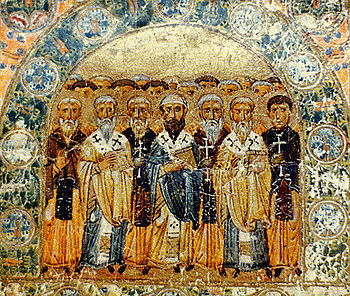


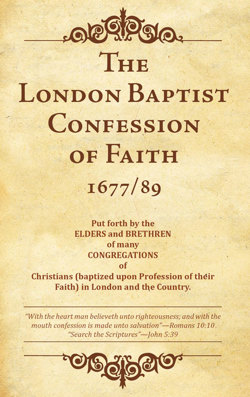




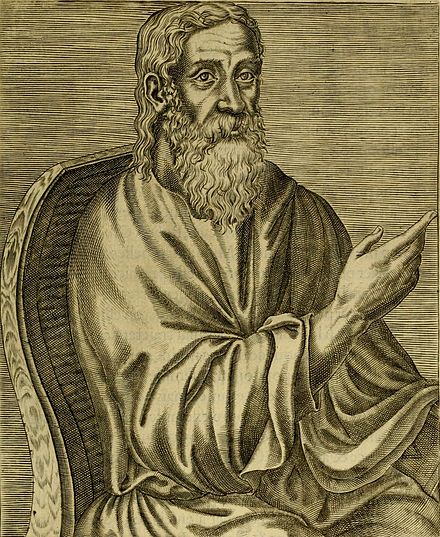
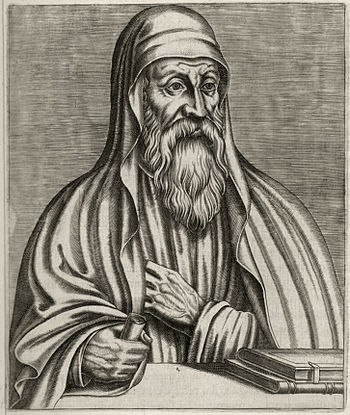

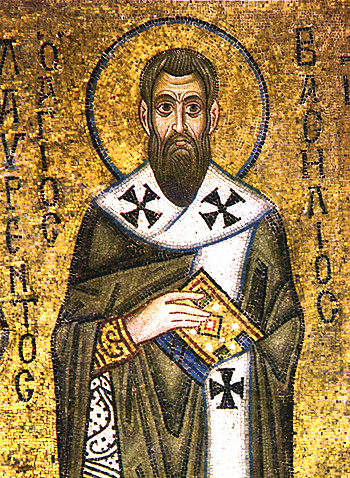



No comments:
Post a Comment